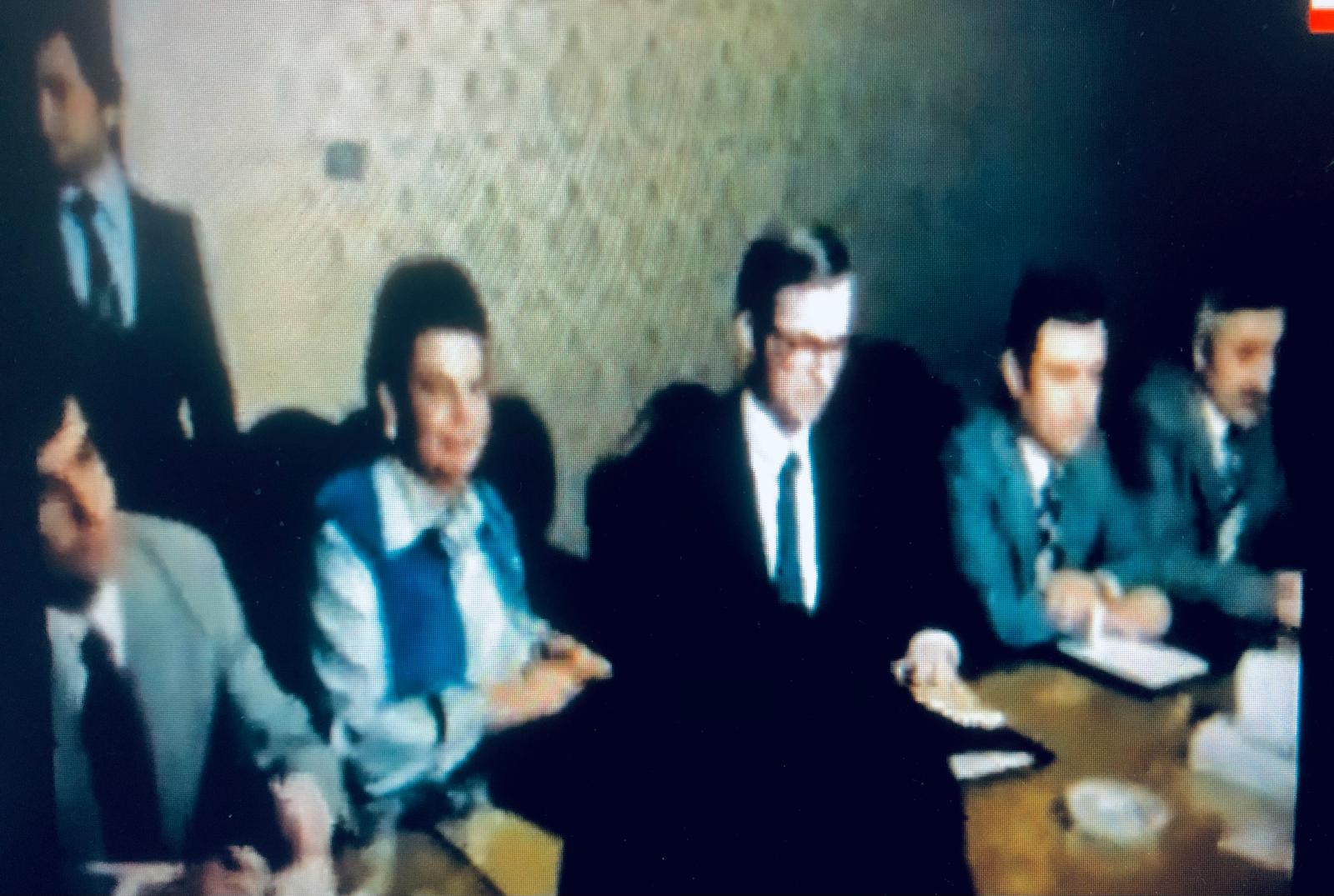Syria’s foreign minister is in Washington attempting to forge a new role for the Soviet Union’s main Middle East ally, which has been politically and militarily defeated in Lebanon.
But the outcome of his talks with President Reagan today will also determine the future of the Middle East for years to come — and whether Israeli forces will storm besieged Beirut in the next few days.
Abdel Halim Khaddam, the first Syrian foreign minister to visit the United States in a considerable time, meets Reagan together with his Saudi counterpart, Prince Saud al Faisal.
Inside besieged Moslem Beirut, it is generally feared that Jerusalem may decide to storm the sector based if the Washington talks fail.
Officials expect Khaddam to focus on re-establishing Syrian influence in the Middle East and in Washington, and it is believed Syria’s refusal to grant refuge to Palestinian guerrillas trapped in west Beirut is not final.
‘Syria is trying to find a role from a position of weakness,’ said a Lebanese official. ‘By refusing to let the Palestinians into Syria, it is attempting to assert itself once more as a player the United States cannot ignore.’
Many Lebanese and Palestinian officials believe Damascus, official headquarters of the Palestine Liberation Organization, would agree to take at least some of the estimated 6,000 guerrillas trapped in west Beirut once the PLO expresses a desire to leave Lebanon as Israel demands.
‘The PLO card is crucial to Syria, to re-establish itself as a protagonist,’ a Lebanese commentator said. ‘Syria has never had any trouble in controlling the Palestinians in Syria.’
Damascus also has a strong security interest in putting the Palestinians under the control of its own tough national police.
Already Palestinian leaders are threatening in private to ‘carry the war into Syria,’ which only briefly engaged Israeli forces despite having 25,000 ‘peacekeeping’ forces in Lebanon.
The first signs are surfacing of Syrian nervousness over possible Palestinian revenge for Damascus’ quick exit from the war in Lebanon and the cease-fire agreed with Israel — a cease-fire interpreted by thePalestinians as ‘de facto peace’ with Israel.

